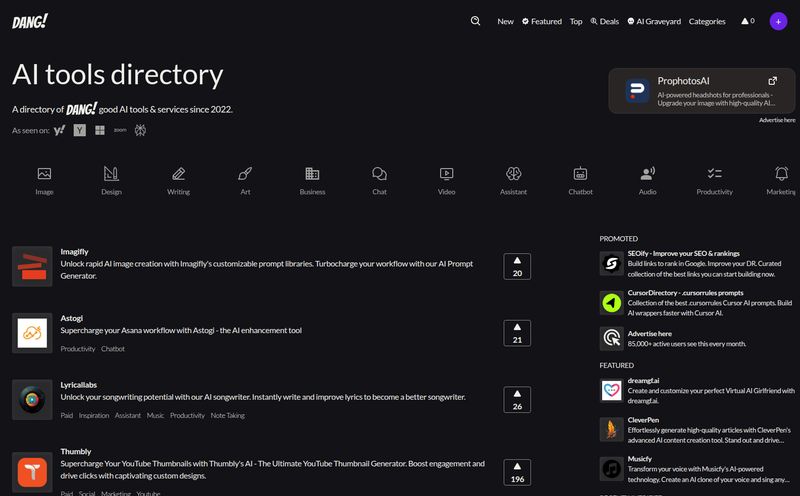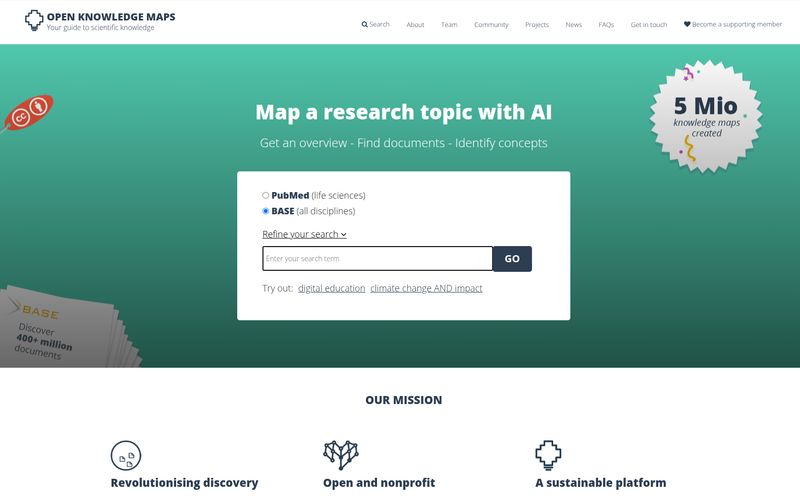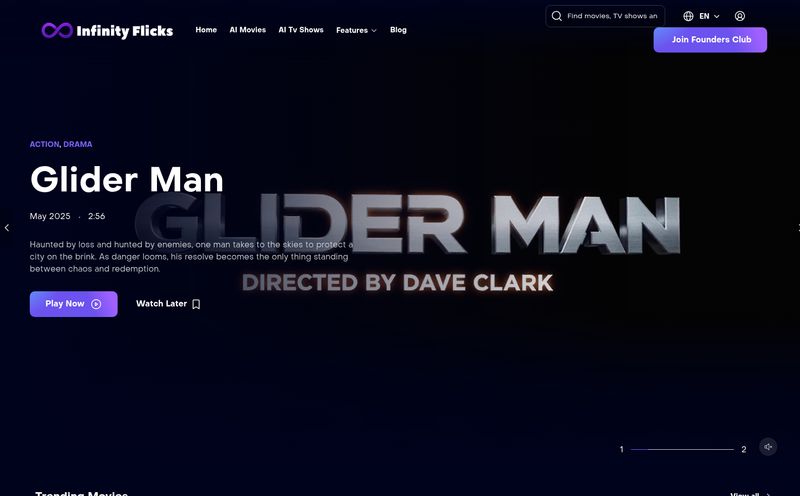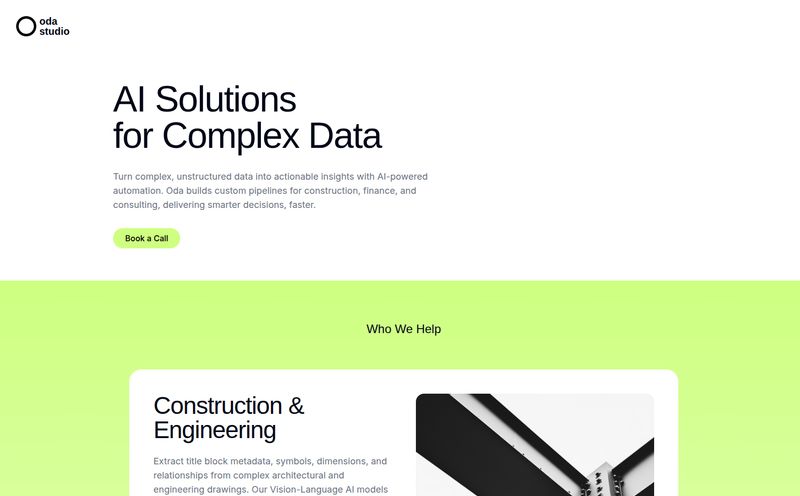The AI space right now feels like trying to drink from a firehose. A constant, relentless torrent of news, research papers from places like arXiv, product launches, and hot takes. It’s… a lot. I spend what feels like half my day just sifting, trying to separate the genuinely groundbreaking stuff from the marketing fluff and the endless stream of “GPT wrappers” that do little more than put a new coat of paint on an existing API.
So, when I stumbled across the concept of a tool called Alpha Feed, my interest was immediately piqued. An AI-powered curator designed to do the sifting for me? Sign me up. The promise was simple, elegant, and exactly what I needed. But when I went to check it out, I found… a digital ghost. A great idea that seems to have vanished into thin air.
This isn't just a review. It's more of a post-mortem. An exploration of a brilliant idea, what it promised, and a little bit of digital detective work into what might have happened.
What Was Alpha Feed Supposed to Be?
The concept behind Alpha Feed was, frankly, brilliant. It wasn't just another RSS aggregator. The plan was to ingest a ton of content from curated sources across the AI world. Then, it would use AI (specifically, it mentioned leveraging ChatGPT) to score every single piece of content based on three key metrics:
- Relevance: Is this actually important to the field?
- Novelty: Is this something new, or just a rehash of old news?
- Impact: What's the potential long-term effect of this development?
These factors would combine to create a “significance score.” Only the most significant stuff would make it to you, delivered either through a clean web feed or a daily summary email. It was designed to be the ultimate signal-to-noise filter. A personal librarian for the AI revolution.
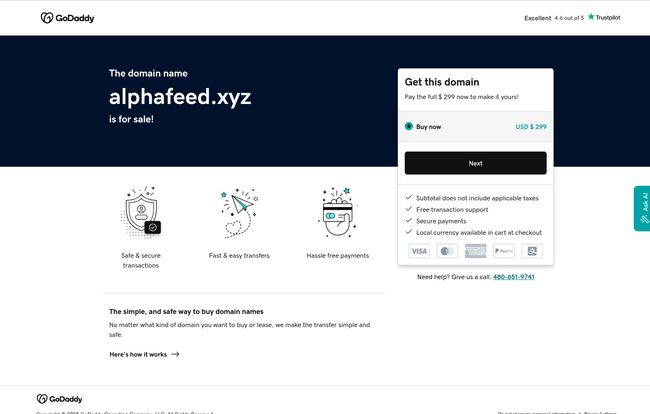
Visit Alpha Feed
The Desperate Need for Curation in a Noisy World
I can’t overstate how much a tool like this is needed. We’re drowning in information. Every day brings a new model, a new technique, a new ethical debate. Keeping up is more than a full-time job. You have your big players like TechCrunch and Wired, but the real gems are often buried in academic papers, niche blogs, or frantic Twitter/X threads. Who has the time to read it all?
The promise of Alpha Feed was to be that trusted guide. The one that taps you on the shoulder and says, “Hey, out of the 500 things that happened today, these three are the ones you really need to know about.” For professionals in SEO, marketing, development, or any field being transformed by AI, that kind of service isn't just a convenience; it's a competitive advantage.
How It Was Meant to Work
The feature set was beautifully straightforward. No bloat, just the essentials. You'd get your daily email with the top stories, or you could log in to a web portal to see the feed. It also promised access to past articles, which is a great touch for research purposes. Imagine being able to look back and see the most “significant” AI news from six months ago. Hindsight is 20/20, but a curated archive is the next best thing.
The ChatGPT-Sized Asterisk
Now, the part about using ChatGPT for scoring is fascinating. On one hand, it’s a powerful and logical way to analyze and rate vast amounts of text. But on the other hand, it comes with a built-in caveat. The platform's own list of cons mentioned that relying on ChatGPT could introduce bias. And I think that's a fair point. Whose bias? Well, OpenAI's, for starters. The model might have its own subtle leanings about what it considers “impactful” or “novel,” based entirely on its training data. Its a problem without an easy solution.
It also brings up the question of sources. The info stated it pulled from “various curated sources,” but the specifics were missing. Transparency here would have been key to building trust. Are we getting a balanced view, or just one shaped by a pre-selected list and a biased AI judge?
So, What Happened to Alpha Feed?
This is where the story takes a turn. All this sounds great on paper, right? But as I mentioned, when I tried to find the service, I hit a dead end. The official website, alphafeed.xyz, wasn't a sleek landing page for a cutting-edge AI tool. It was a GoDaddy auction page.
The domain name alphafeed.xyz is for sale!
For a cool $299, you can own the digital tombstone of this once-promising idea. That, combined with the pricing information I dug up which explicitly mentioned “Service currently unavailable,” paints a pretty clear picture. Alpha Feed is no more. It's a defunct project. Another great idea that, for one reason or another, didn't cross the finish line.
The Ghost of a Price Tag
Out of sheer curiosity, I looked into the proposed pricing. And honestly, it might be a clue in itself. The cost was incredibly low. For full access—the AI-filtered feed, daily emails, and archives—it was a simple, flat fee.
| Plan | Price | Features |
|---|---|---|
| Monthly All-Access | $2.50 USD | AI feed, daily email, priority updates, article archive |
| Yearly All-Access | Unavailable | Same as monthly |
$2.50 a month. That’s less than a cup of coffee. While it’s tempting for users, I have to wonder if it was sustainable. Running constant analysis with a powerful model like ChatGPT costs money—real API call costs. At that price point, you’d need a massive user base just to break even on the operational overhead. It's a classic startup dilemma: price too high and no one signs up; price too low and you can’t keep the lights on.
Lessons from the Digital Graveyard
The story of Alpha Feed, short as it was, is a classic startup tale. It's a reminder that a brilliant idea is only the first step. Execution, marketing, funding, and finding a sustainable business model are just as important, if not more so. In the hyper-competitive world of AI tools, hundreds of new products launch every week. Just having a good concept isn't enough to survive.
Perhaps the project was a one-person passion project that became too much to handle. Perhaps they couldn't secure funding. Or maybe they launched and simply couldn't get enough subscribers to make the economics work. We'll likely never know for sure, but we can learn from it.
Conclusion: A Toast to the Next Big Idea
I’m genuinely a bit sad that Alpha Feed isn't a real thing I can use today. The problem it set out to solve—information overload in AI—is only getting worse. We need more curators, more filters, more tools that help us find the signal in the ever-increasing noise.
The ghost of Alpha Feed serves as both a cautionary tale and a source of inspiration. It shows there's a real hunger for this kind of solution. So, to whoever is out there building the next Alpha Feed, I say this: learn from the ghosts of startups past, build a sustainable model, and please, take my money. I’ll be first in line.
Frequently Asked Questions
- What was Alpha Feed?
- Alpha Feed was the concept for an AI-powered news aggregator focused on the artificial intelligence industry. It intended to use AI to score news for relevance, novelty, and impact, delivering only the most significant stories to users via email and a web feed.
- Is Alpha Feed still available?
- No, Alpha Feed appears to be a defunct service. The official domain name (alphafeed.xyz) is listed for sale on GoDaddy, and promotional materials found online state the service is unavailable.
- How much was Alpha Feed supposed to cost?
- The proposed price was $2.50 per month for an all-access subscription that included the AI-filtered feed, daily summary emails, and access to past articles.
- What are some alternatives to Alpha Feed?
- While no tool does exactly what Alpha Feed promised, users looking for curated AI news can check out newsletters like Ben's Bites, The Neuron, or industry publications like MIT Technology Review's 'The Algorithm' to stay informed.
- Why do so many tech tools and startups fail?
- Startups fail for many reasons, including running out of funding, a lack of market need for the product, getting outcompeted, a flawed business model (like pricing that is too low to be sustainable), or internal team issues. In a crowded space like AI, these challenges are even more pronounced.
- Was Alpha Feed's reliance on ChatGPT a good idea?
- It was a double-edged sword. Using a powerful LLM like ChatGPT for analysis is innovative and can be very effective. However, it also introduces potential issues like inherent model bias and significant operational costs from API calls, which can make a low-cost subscription model difficult to sustain.
Reference and Sources
- Domain Sale Listing: alphafeed.xyz on GoDaddy Auctions
- Academic Pre-print Server: arXiv.org for AI research papers
- OpenAI Information: Official ChatGPT Page
